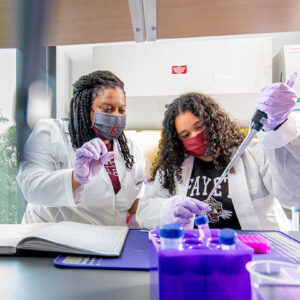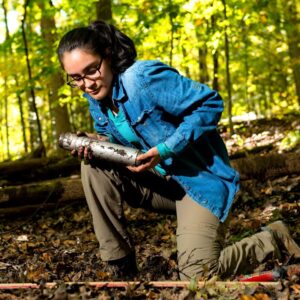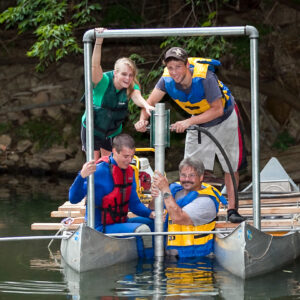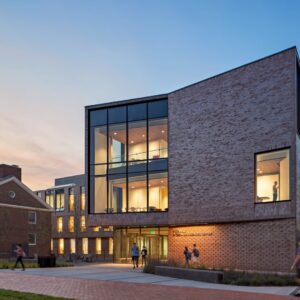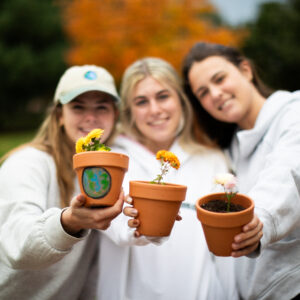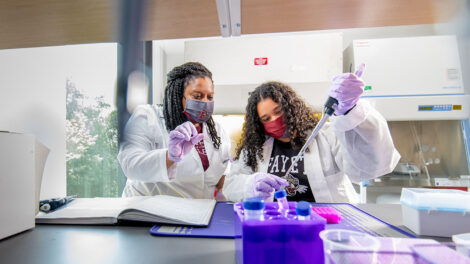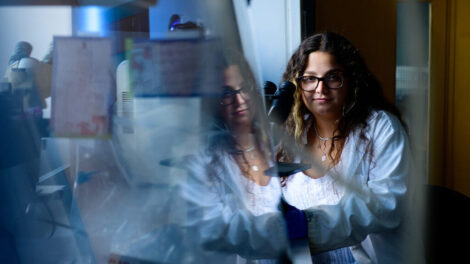Green Labs Certification
Create a greener lab space with the Green Labs program
By participating in Lafayette’s Green Labs Program, teaching and research labs across campus can take action to reduce their resource consumption and drive forward a culture of sustainability at Lafayette.
This voluntary self-guided program presents labs with a checklist of sustainability-focused actions they can incorporate into both planning and day-to-day of lab operations. Labs will then be certified based on the percentage of points received out of points possible and will have the opportunity to showcase their efforts to the Lafayette community! The course instructor or faculty member of a lab oversees the process and can involve students to help in certification and implementation of best practices.
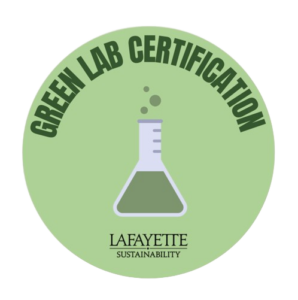
HAVE QUESTIONS ABOUT GREEN LABS?
What are the goals of this program and why should my lab be involved?
The Green Labs Program aims to introduce and improve sustainability efforts in labs throughout campus. By reconsidering and reimagining the ways in which we approach scientific research and teaching practices, we can incorporate “greener” practices which limit waste, increase efficiency, and reduce energy and water consumption. The Green Labs initiative is part of the campus-wide Climate Action Plan 2.0 and is one component of energy efficiency measures being taken to reach our goal of carbon neutrality by 2035.
Why do we need Green Labs?
Laboratories are very resource-intensive spaces in terms of their consumption of energy, water, and disposable plastic equipment. On average, labs use 10x more energy than offices and a single ultra-low temperature freezer can use as much energy as an average household each day (GreenLabs.org). Even small changes in lab practices can result in a significantly reduced environmental impact. For example, raising the temperature of a freezer from -80C to -70C can reduce energy consumption by up to 40%. The action items in the checklist may vary in applicability across Lafayette labs, but will support the campus-wide effort toward sustainability and carbon neutrality.
What is considered a "lab"?
Labs can include a variety of facilities across campus where teaching and research is conducted in dedicated spaces with specialized equipment or materials. Teaching labs are certified based on the the course and modules in the course while research labs are certified based on the practices in a particular space. Labs exist across campus departments, from biology and chemistry to engineering and creative art spaces.
What are the steps to certification?
Interested parties can begin by filling out the interest form and reviewing the checklist. A representative from the Office of Sustainability will be in touch with you to find a time to meet and review the checklist together, identifying current practices and possible future practices. A certification level can be achieved in this initial meeting if enough points are received based on current practices. A certified lab will receive a certificate to display.
What is included in the checklist?
The checklist includes actions across categories of waste, water, and energy use, as well as green chemistry and engagement and education practices.
What are the levels of certification?
The levels are bronze, silver, gold, and platinum. The level determination is based on the percentage of points received out of points available.
Can my lab recertify?
Yes! In fact, we encourage you to do so annually as you adopt greener practices!
Connect with us
Office of Sustainability
746 High Street
Easton PA, 18042
sustainability@lafayette.edu
